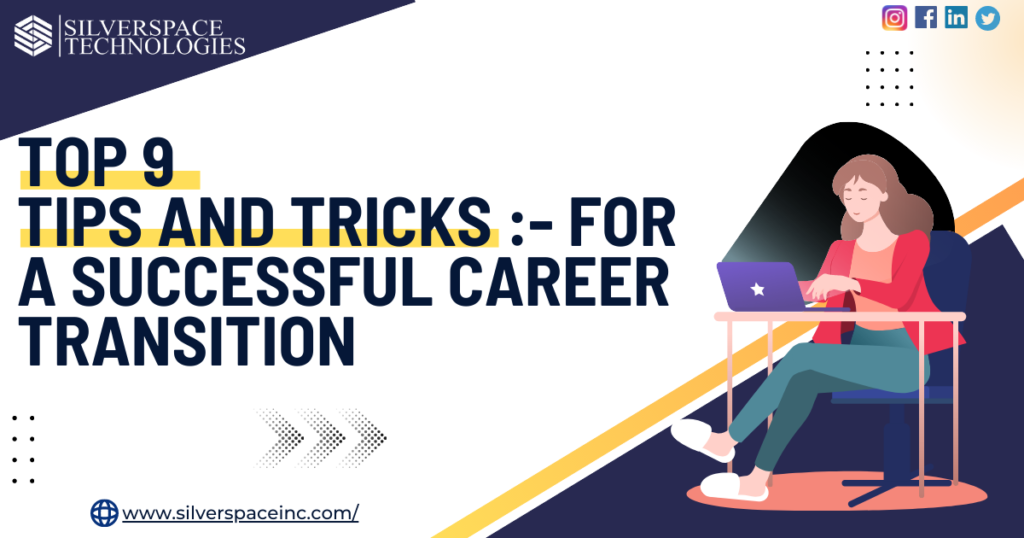How Job Consultancy in the USA Can Help You Land Your Dream Job
Are you tired of endlessly scrolling through job boards, sending out countless resumes, and not getting any callbacks? If so, it’s time to turn your dream of landing your perfect job into a reality with the help of Job Consultancy in the USA. These specialized agencies are dedicated to guiding job seekers like you through the complex and competitive job market, ensuring that your skills and qualifications are matched with the right opportunities. With their extensive network of contacts and insider knowledge of the industry, Job Consultancy can connect you with hidden job openings, provide valuable career advice, and even offer personalized coaching to help you ace interviews. Say goodbye to the frustration of job hunting and let the experts pave the way to your dream job. In this blog, we will explore the benefits of working with Job Consultancy in the USA, and how they can significantly increase your chances of securing that dream position. The Role of Job Consultancy in the USA Job Consultancy plays a crucial role in bridging the gap between job seekers and employers in the USA. With their extensive network of contacts and insider knowledge of the industry, these agencies are well-equipped to connect you with hidden job openings that may not be advertised through traditional channels. They have established relationships with various companies, ranging from small startups to multinational corporations, which allows them to tap into a wide range of job opportunities. Benefits of using Job Consultancy Working with Job Consultancy comes with a multitude of benefits that can significantly increase your chances of landing your dream job. First and foremost, they save you time and effort by doing the legwork for you. Instead of spending hours searching for job openings and tailoring your applications, they can streamline the process by matching your skills and qualifications with suitable job opportunities. This not only saves you time but also ensures that you are targeting the right positions. Furthermore, they have a deep understanding of the job market and can provide you with valuable insights into industry trends, salary expectations, and growth opportunities. This knowledge can help you make informed decisions about your career path and negotiate better job offers. They can also offer guidance on how to improve your resume, optimize your LinkedIn profile, and enhance your online presence to attract potential employers. How Job Consultancy can help you land your dream job Job Consultancy has a comprehensive approach to helping you land your dream job. They start by getting to know you on a personal level, understanding your skills, qualifications, and career goals. This allows them to match you with job opportunities that align with your aspirations and strengths. Once they have identified suitable positions, Job Consultancy can assist you with the application process. They help you tailor your resume and cover letter to highlight your relevant experience and skills, ensuring that your application stands out from the competition. They also provide guidance on how to prepare for interviews, offering valuable insights into the company’s culture, interview format, and potential questions. In addition to their expertise in the job market, Job Consultancy also has access to a wide range of resources that can further enhance your chances of success. They may offer training programs, workshops, and networking events to help you develop your professional skills and expand your network. Some Job Consultancy even provides ongoing support after you land a job, offering career coaching and mentoring to help you thrive in your new role. Services offered by Job Consultancy Job Consultancy offers a range of services to assist job seekers throughout their job search journey. Some of the common services provided by these agencies include: 1. Job matching: It uses its network and industry knowledge to match job seekers with suitable job opportunities. 2. Resume and cover letter optimization: They help job seekers tailor their resumes and cover letters to make a strong impression on potential employers. 3. Interview coaching: They provide interview coaching and preparation, helping job seekers feel confident and prepared for interviews. 4. Career: They offer valuable career advice, helping job seekers make informed decisions about their professional development. 5. Networking events: Many Job Consultancies organize networking events and workshops to help job seekers expand their professional network. Success stories of job seekers who used Job Consultancy Countless job seekers have successfully landed their dream jobs with their help of them. One such success story is Sarah, a UX Researcher, and professional who was struggling to find the right job despite her qualifications and experience. Sarah decided to partner with a job consultancy that specialized in UX/UI research. The consultancy matched her with a position at a leading application and website design company, where she was able to utilize her skills and grow her career. Without the consultancy’s guidance and connections, Sarah believes she would have never discovered this hidden opportunity. Another success story is David, an IT professional who was looking to transition into a management role. With the help of a job consultancy, David was able to identify relevant positions and receive personalized coaching to enhance his leadership skills. He ultimately secured a management position at a technology company, thanks to the consultancy’s support and expertise. These success stories highlight the transformative impact that Job Consultancy can have on job seekers’ careers. By leveraging their network, expertise, and resources, they can open doors to opportunities that may have otherwise gone unnoticed. How to choose the right job consultancy for you Choosing the right job consultancy is crucial to maximizing your chances of success. Here are a few factors to consider when selecting a job consultancy: 1. Specialization: Look for consultancies that specialize in your industry or field of interest. They will have a better understanding of the job market and relevant opportunities. 2. Reputation: Research the consultancy’s reputation and track record. Read reviews, testimonials, and success stories to gauge their effectiveness. 3. Network: Consider the consultancy’s network and connections. A broader network increases the likelihood of finding
How Job Consultancy in the USA Can Help You Land Your Dream Job Read Post »

